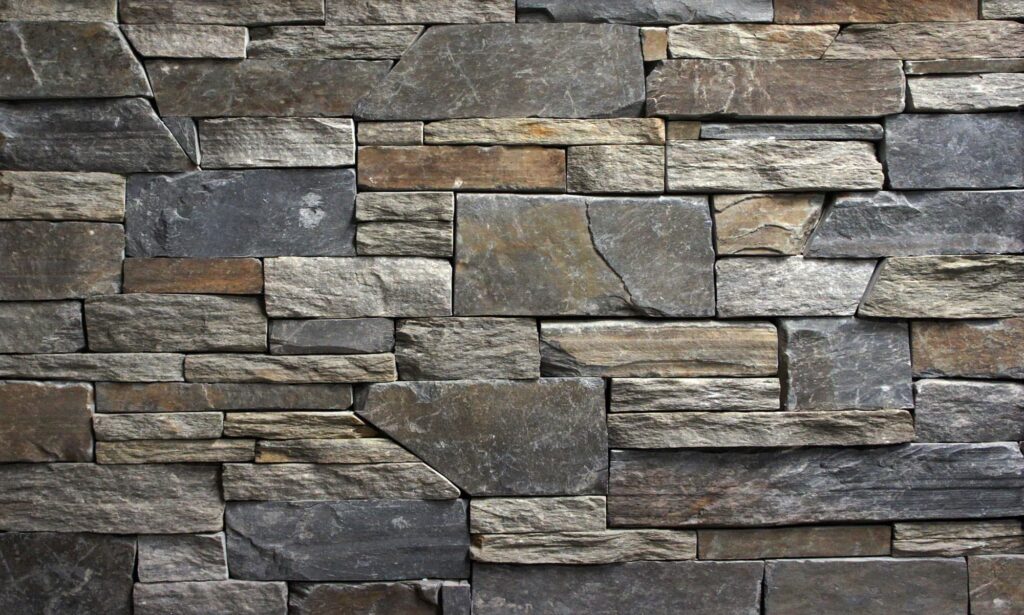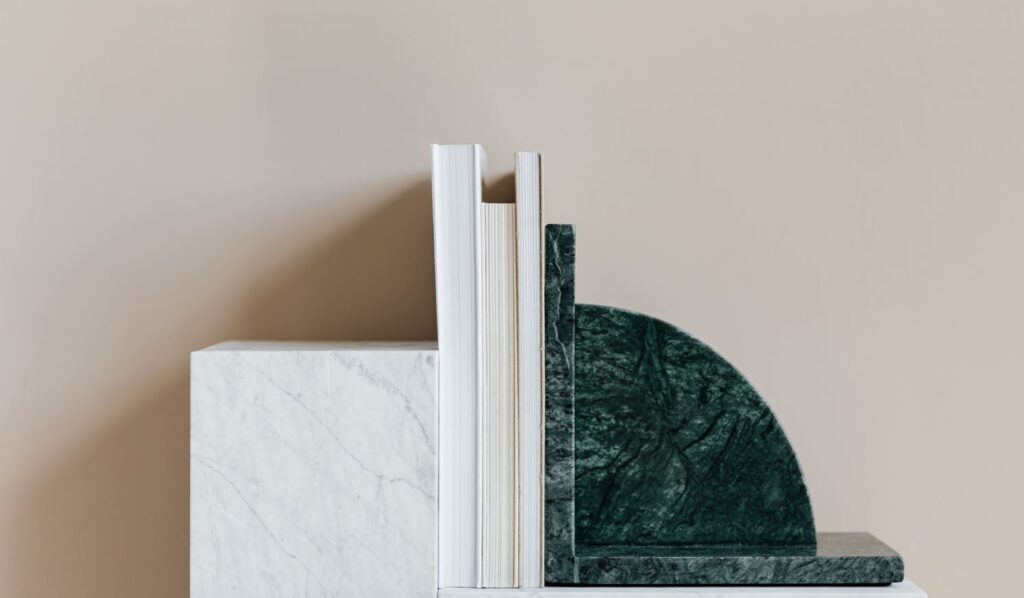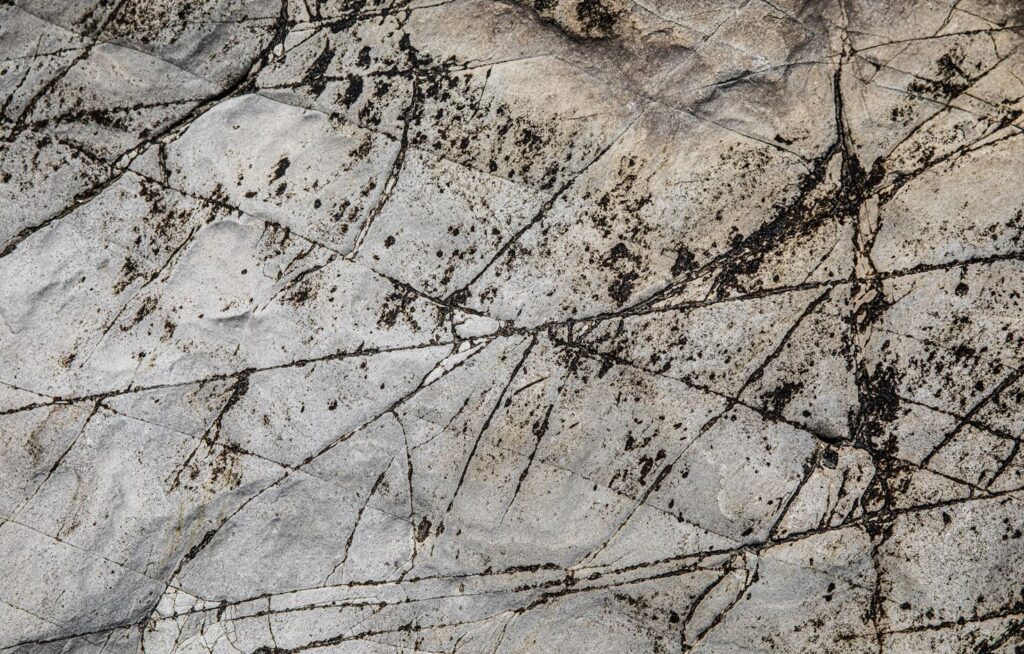Cladding a building with natural stone gives it a classic look that will last for decades. But regular maintenance is required to keep it looking good and lasting long.
Stone is well-known as a high-end material that may decorate a space with style and uniqueness. It's easy to see why it's becoming a popular choice for home decorators and builders alike. The surface may be pristine for much longer with the right maintenance.
Follow along as we take you by hand and show you how to care for your natural stone cladding correctly.
The Importance of Regular Natural Stone Cladding Maintenance
Natural stone cladding requires regular upkeep to prevent costly repairs. Weathering causes wear and tear over time, leading to expensive maintenance needs. Maintaining your stone cladding will extend its life and keep it looking great for years.
Stone cladding's popularity
Covering the structure in gorgeous natural stone is a fantastic choice, whether for the interior or exterior. Why? For the simple reason that this is an extremely long-lasting material. You won't have to replace it for a long time because it ages so well. However, the condition of your stone cladding is partly contingent on your maintenance efforts.
Care and Maintenance Guidelines for Natural Stone
A home's hominess can be increased with the usage of natural stone. They are aesthetically pleasing, and they are also a safe, long-lasting material. That's why regular upkeep and care are so important. Here are some of the best ways to preserve your stone floors if you need help knowing where to begin.
Use a Sealant to Preserve
Due to its porosity, natural stone needs constant sealing to last.
If the outside is sealed, it will be protected from bacteria, dust, acid, and other potentially damaging substances. The frequency with which you should seal different types of natural stone varies widely.
Highly porous natural stone flooring, such as Indian sandstone, marble, and limestone, must be regularly resealed.
The annual resealing of quartz and granite, which have a lower porosity, is sufficient. Read this blog post for additional information on sealing external natural stone.
Use Bleach and Water for Mould and Mildew
Particularly on patio flooring, sidewalks, and even underneath planters, mould and mildew thrive when dirt and moisture combine on a porous surface.
Natural stone floors should not be cleaned with anything acidic, even though most people use vinegar when dealing with mould and mildew. Fortunately, bleach and baking soda can also be used to eliminate mould. A solution of one part bleach to four parts water can be used to deal with this issue.
It's worth noting that the bleach can only be cleaned if it's diluted in cold water. Spray the solution over the surface to gently scrape mould and mildew away using a brush. Finally, wash it with water and pat dry with a soft cloth.
Keep your surfaces clean at all times.
Maintaining a regular cleaning schedule for your slate flooring is essential to avoiding the buildup of dirt, dust, and other particles over time. Maintain order by mopping the floor every day using a pH-neutral dry mop.
Natural stone may seem robust, but it requires a gentle treatment to avoid scratches. Acidic or abrasive cleaners are not recommended. It is recommended by Hunker that you make your floor cleaning if you need clarification on the pH values of commercially available products.
You can accomplish this by combining 90 per cent baking soda, 8 per cent water, and 2 per cent Castile soap. After mopping the floors thoroughly, dry them with a soft towel to prevent water spots.
Prevent the Entry of Mud and Rain
Finally, if you have natural stone flooring, a doormat will protect it. Despite its diminutive size, it significantly mitigates the transfer of dirt and moisture to the surface.
Selecting a suitable doormat for the exterior stone flooring is essential. Rubber and brush are two materials that would hold up well in outdoor mats.
The same holds for your patio floor; use an area rug. Remember to vacuum the doormat weekly to remove dirt and debris.
How to Maintain the Cleanliness of Stone Cladding
Discover the best methods for cleaning stone cladding to ensure it always looks fresh and new.
Exactly Why Should You Maintain Your Wall Cladding Tiles?
There are several good reasons to keep your wall-cladding tiles clean, both inside and out. The importance of routine cladding maintenance is illustrated by the following:
- When the cladding on a building or home is clean, it gives customers a far better first image.
- It protects the cladding from dirty weather, pollution, and muck.
- If the cladding is kept clean, it will last much longer.
- The original installer's warranty policy may stipulate that the system must be cleaned regularly to be valid.
- Tiles that line your walls can be damaged over time by grime, dirt, and other pollutants. Maintaining a regular cleaning routine can reduce the severity of such damage and extend the life of your cladding.
- The cladding of your building may be collecting germs and other microbes from the outside air, which could affect the cleanliness of your structure. The elimination of these pathogens is one of the benefits of maintaining a clean facility regularly.
Tips for Getting Stone Cladding Ready?
Stone ages more rapidly due to its large porosity, susceptibility to water absorption, and exposure to severe weather, all of which can produce permanent stains. That's why impregnating stone is such a crucial component of maintaining it. This treatment is necessary for interior and exterior stone cladding to prevent damage from moisture and dirt. But how does one go about scrubbing stone?
Materials and Essential Tools
It's crucial to get all your supplies together before beginning the process of maintaining your stone cladding. So, to recap, you'll need:
- Protective equipment: Your safety is your number one priority. Gloves, goggles, and a mask are essential.
- Stone-Safe Cleaner or Mild Detergent: Pick a cleaner made specifically for your stone.
- A clean bucket and water for rinsing is required.
- Invest in a good stone sealer designed for your type of stone.
- Cleaning Cloth/Sponge: When cleaning, always use a soft cleaning cloth/sponge.
Cleaning Stone Wall Cladding: What Should You Do?
Maintaining the beauty and durability of your wall cladding tiles requires regular cleaning. Methods for efficiently cleaning cladding tiles are as follows.
Vacuum
In our country, dust accumulation on walls is widespread, especially near major roads. Furthermore, dust can easily enter the house and settle on the walls if there are many windows. Elevation tiles can be polished using a broom or towel, although dust irritates the nose. Use a vacuum to clean the tiles that make up the inside and exterior of the wall. This will prevent dust from escaping while you clean the stone covering.
TSP
Trisodium phosphate (TSP) is an inorganic chemical that, when combined with water, forms an alkaline solution for cleaning, removing stains, and degreasing stone cladding. To polish natural stone cladding, combine half a cup of TSP with around 3.875 litres of warm water and apply with a soft brush.
Water
Cladding tiles can be cleaned in various simple methods, but nothing beats a good scrubbing with clean water. The most important consideration is not the specifics of your water usage or the materials you employ in your cleaning process. After washing the tiles that make up an outside wall's cladding, it's best to let them dry naturally in the air while drying the tiles that make up an interior wall with a clean towel.
Washing Liquid and Salt
After the walls have been dusted, this procedure must be carried out. You can cure it quickly with three pantry staples:
- Salted water dish detergent
Mix equal amounts salt and dish soap with water to make a thick paste. A thick cloth or sponge can apply the paste to the wall, and a plastic or wire brush can scrape the solution deep into the wall's linings. Please wait 15 minutes before washing it down the drain.
FAQs About Masonry
Pressure washing is not recommended, as high-pressure water can damage the stone surface or force water behind the cladding, potentially causing structural issues.
Regularly remove debris and keep the surface clean. Consider applying an algae-resistant sealer or a specialised anti-algae treatment as a preventive measure.
A professional stone mason should promptly repair loose or damaged stones. Ignoring such issues can lead to further damage or safety concerns.
Yes, cleaning and sealing can enhance the colour and lustre of your natural stone cladding, restoring its original beauty.
Yes, the care routine may vary based on the type of stone used. Some stones are more porous and may require more frequent sealing and cleaning, so it's essential to research and follow guidelines specific to your stone type.
How Often Should Wall Cladding Be Cleaned?
Wall cladding cleaning frequency depends on the material, building location, and pollution level. Brick wall cladding tiles, for example, may require more regular cleaning if your building is in a highly polluted area than in a less congested one.
How often you'll need to clean your cladding tile depends largely on the material it's made from. Natural stone cladding has higher maintenance needs than brick or metal cladding.
Due to its porous nature, natural stone is more susceptible to breakage and staining. Thus, genuine stone cladding should be cleaned every six months.
It's also possible that the building's location will affect how often it's cleaned. For instance, a building near a highway or an industrial zone can be subject to higher air pollution and filth, necessitating more frequent cleaning.
Stone Wall Protection and Sealing
Natural stone cladding requires regular maintenance, including sealing. It's a shield against the seepage and discolouration that water can cause. What you need to know is as follows.
Select the Right Sealer:
Pick a sealer that works well with the stone you have. If in doubt, seek the advice of an expert.
Application:
When using a sealer, ensure to do so per the product's instructions. Sealers are typically spread out evenly and let dry.
Resealing:
Stones and climates vary in how often they need to be resealed.
Preventive Maintenance
Here are some precautions to take to ensure that your stone cladding remains in pristine condition:
- Checking for chips, cracks, or loose stones should be done routinely.
- Quickly fixing little problems will save you time and money in the long run.
Hiring Professionals
Stone cladding should be maintained by professionals in some instances. An expert in stone cladding maintenance can help if you're unsure or have serious damage. They've got the know-how and resources to tackle tough problems head-on.
Conclusion
Natural stone cladding is a popular choice for both interior and exterior construction due to its durability and longevity. However, regular maintenance is crucial to prevent costly repairs and maintain its appearance. Sealant is essential for maintaining the surface of natural stone, as it protects it from bacteria, dust, and other harmful substances. High-porous natural stone flooring, such as Indian sandstone, marble, and limestone, should be regularly resealed. Quartz and granite, with lower porosity, can be resealed annually.
Mould and mildew thrive on porous surfaces, so it is important to avoid using acidic cleaners like vinegar or vinegar. Instead, use bleach and baking soda to eliminate these issues. Regular cleaning is essential to prevent dirt, dust, and other particles buildup. Mopping the floor daily with a pH-neutral dry mop is recommended.
A doormat is also essential for protecting natural stone flooring from dirt and moisture. Rubber and brush are suitable outdoor mats, while area rugs can be used for patio floors. Vacuuming the doormat weekly helps remove dirt and debris.
Maintaining wall cladding tiles is essential for several reasons. It gives customers a better first impression, protects the cladding from dirt, pollution, and muck, extends its lifespan, and reduces the severity of damage caused by grime, dirt, and pollutants. Regular cleaning also helps eliminate germs and microbes from the outside air, ensuring the cleanliness of your building.
Stone cladding is a crucial component of maintaining its beauty and durability due to its large porosity, susceptibility to water absorption, and exposure to severe weather. To clean stone, it is essential to have protective equipment, a stone-safe cleaner or mild detergent, a clean bucket and water for rinsing, and a good stone sealer designed for your type of stone. Using a soft cleaning cloth/sponge is also essential.
Regular cleaning of wall cladding tiles is essential for maintaining its beauty and durability. Methods for efficient cleaning include vacuuming, using Trisodium phosphate (TSP), and using water. The frequency of cleaning depends on the material, building location, and pollution level. Natural stone cladding has higher maintenance needs than brick or metal cladding, and should be cleaned every six months.
Stone wall protection and sealing are essential for natural stone cladding, which shields against seepage and discoloration caused by water. To ensure pristine condition, check for chips, cracks, or loose stones regularly and hire professionals if necessary. Regular maintenance can save time and money in the long run.
Content Summary:
- Cladding a building with natural stone gives it a classic look that will last for decades.
- But regular maintenance is required to keep it looking good and lasting long.
- Stone is well-known as a high-end material that may decorate a space with style and uniqueness.
- The surface may be pristine for much longer with the right maintenance.
- Follow along as we take you by hand and show you how to care for your natural stone cladding correctly.
- Natural stone cladding requires regular upkeep to prevent costly repairs.
- Maintaining your stone cladding will extend its life and keep it looking great for years.
- Covering the structure in gorgeous natural stone is a fantastic choice, whether for the interior or exterior.
- However, the condition of your stone cladding is partly contingent on your maintenance efforts.
- A home's hominess can be increased with the usage of natural stone.
- They are aesthetically pleasing, and they are also a safe, long-lasting material.
- That's why regular upkeep and care are so important.
- Here are some of the best ways to preserve your stone floors if you need help knowing where to begin.
- Due to its porosity, natural stone needs constant sealing to last.
- The frequency with which you should seal different types of natural stone varies widely.
- Fortunately, bleach and baking soda can also be used to eliminate mould.
- Keep your surfaces clean at all times.
- Maintaining a regular cleaning schedule for your slate flooring is essential to avoiding the buildup of dirt, dust, and other particles over time.
- Maintain order by mopping the floor every day using a pH-neutral dry mop.
- Finally, if you have natural stone flooring, a doormat will protect it.
- Selecting a suitable doormat for the exterior stone flooring is essential.
- Remember to vacuum the doormat weekly to remove dirt and debris.
- Discover the best methods for cleaning stone cladding to ensure it always looks fresh and new.
- There are several good reasons to keep your wall-cladding tiles clean, both inside and out.
- The importance of routine cladding maintenance is illustrated by the following: When the cladding on a building or home is clean, it gives customers a far better first image.
- Maintaining a regular cleaning routine can reduce the severity of such damage and extend the life of your cladding.
- This treatment is necessary for interior and exterior stone cladding to prevent damage from moisture and dirt.
- It's crucial to get all your supplies together before beginning the process of maintaining your stone cladding.
- Pick a cleaner made specifically for your stone.
- Invest in a good stone sealer designed for your type of stone.
- Maintaining the beauty and durability of your wall cladding tiles requires regular cleaning.
- Methods for efficiently cleaning cladding tiles are as follows.
- Use a vacuum to clean the tiles that make up the inside and exterior of the wall.
- This will prevent dust from escaping while you clean the stone covering.
- After washing the tiles that make up an outside wall's cladding, it's best to let them dry naturally in the air while drying the tiles that make up an interior wall with a clean towel.
- After the walls have been dusted, this procedure must be carried out.
- You can cure it quickly with three pantry staples: Salted water dish detergent Mix equal amounts salt and dish soap with water to make a thick paste.
- A thick cloth or sponge can apply the paste to the wall, and a plastic or wire brush can scrape the solution deep into the wall's linings.
- Please wait 15 minutes before washing it down the drain.
- Wall cladding cleaning frequency depends on the material, building location, and pollution level.
- How often you'll need to clean your cladding tile depends largely on the material it's made from.
- Natural stone cladding has higher maintenance needs than brick or metal cladding.
- Thus, genuine stone cladding should be cleaned every six months.
- It's also possible that the building's location will affect how often it's cleaned.
- Natural stone cladding requires regular maintenance, including sealing.
- What you need to know is as follows. Pick a sealer that works well with the stone you have. If in doubt, seek the advice of an expert.
- Here are some precautions to take to ensure that your stone cladding remains in pristine condition: Checking for chips, cracks, or loose stones should be done routinely.
- Stone cladding should be maintained by professionals in some instances.
- An expert in stone cladding maintenance can help if you're unsure or have serious damage.


